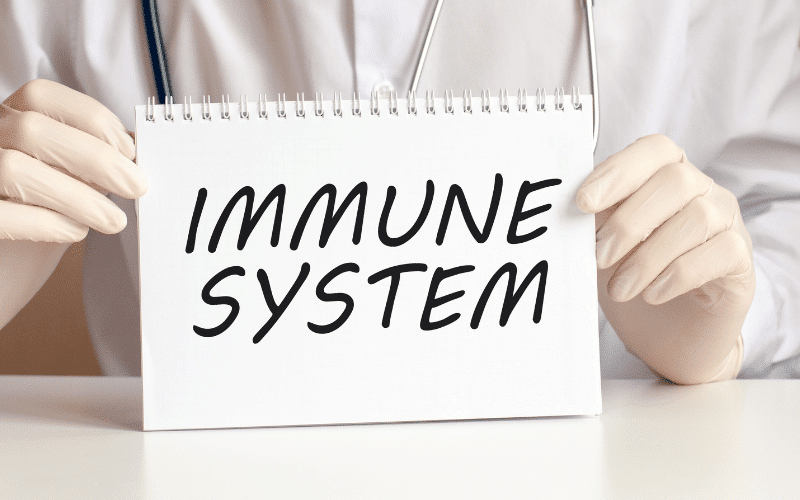Cause 7. Immune System Dysfunction: When Defense Turns Against

Atopic dermatitis is also closely associated with an overactive immune system. The immune system, designed to protect the body from harmful invaders like bacteria and viruses, can sometimes react excessively to harmless substances like dust, pollen, or certain foods. This overreaction results in inflammation, leading to the redness, itching, and swelling characteristic of atopic dermatitis.
At the heart of this immune system dysfunction is a type of white blood cell called a T cell. In a well-functioning immune system, T cells respond appropriately to threats, but in atopic dermatitis, these cells are activated unnecessarily, leading to an inflammatory response in the skin.
Another key player in this immune response is a molecule called Immunoglobulin E (IgE). IgE levels are often elevated in individuals with atopic dermatitis, and these high levels can trigger an allergic reaction, leading to inflammation and skin irritation. (7)